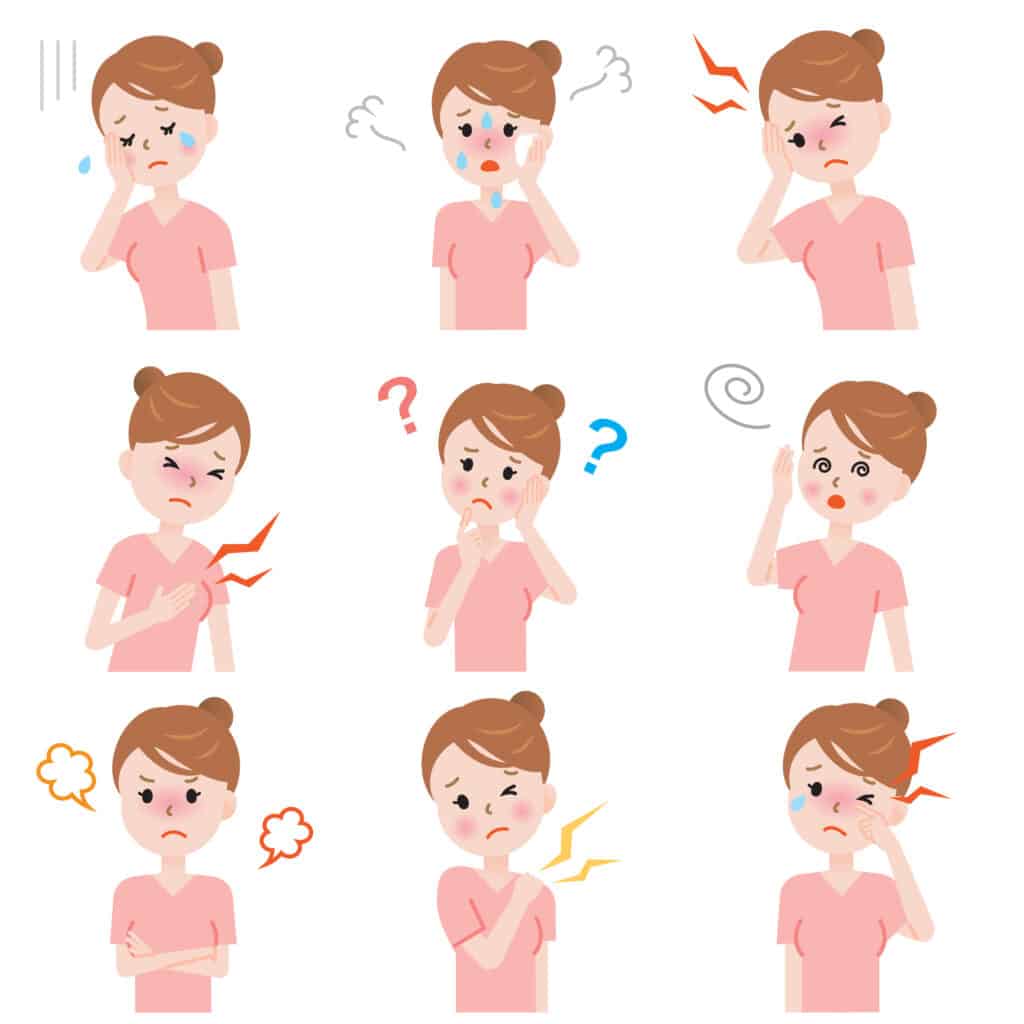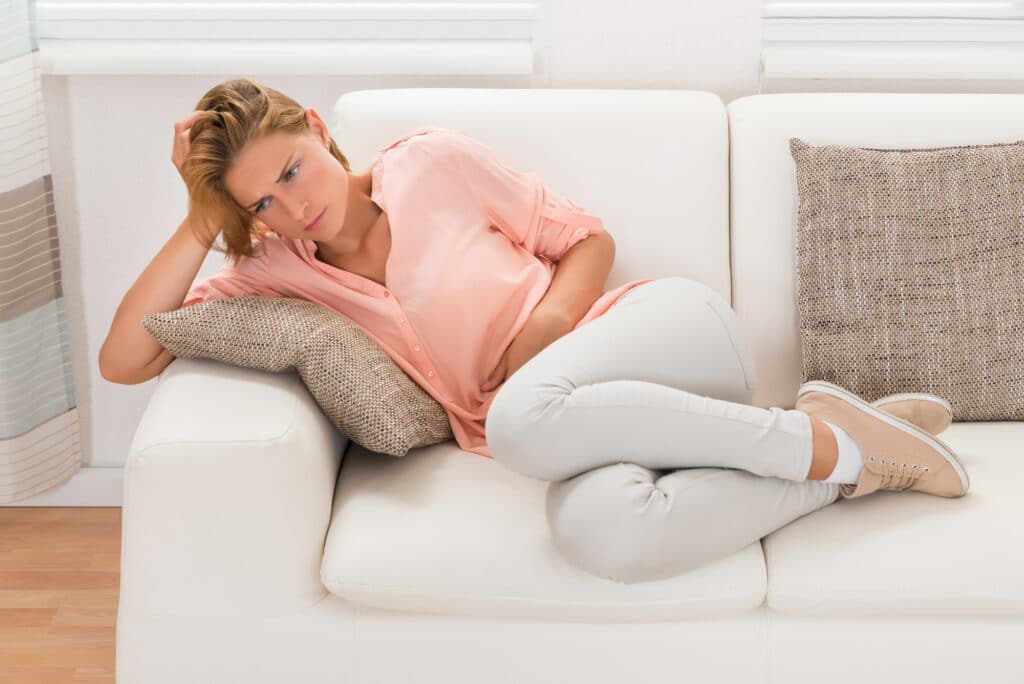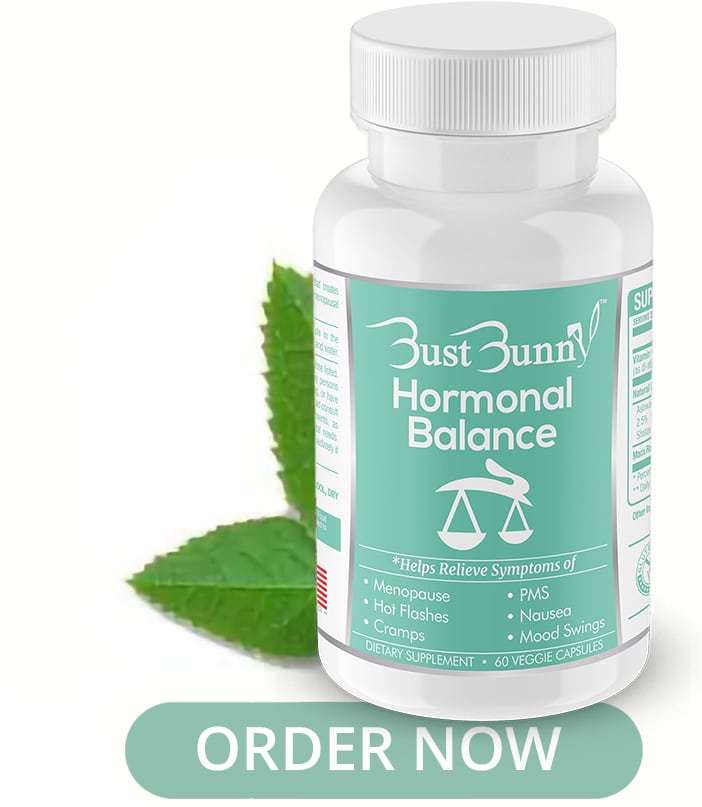Menopause is a natural process that mostly every woman will experience at some point in her life. Typically a woman will enter menopause and start noticing hormonal changes in her 40’s or 50’s. Although this can vary and sometimes come earlier and or later, this is the most common age frame.
As you may or may not know, you are “menopausal” when you have not had your period for 12 consecutive months. Up to that point you are Perimenopausal.
There are many signs and symptoms that you are entering perimenopause. The first one usually is an irregular period. This may last for several years before you notice any other changes. For example, normally you have a period every 28-30 days. As you enter perimenopause you’ll notice that your periods may come every 15 days or 45 days.
The 2nd sign that you’re perimenopausal are hot flashes. These may happen every now and then for a couple of years leading up to menopause. As things progress you might start experiencing low energy, mood changes, low libido, lack of sleep, insomnia, anxiety, depression and weight gain.
Menopausal symptoms are different for every woman, some may experience signs of hormonal imbalance early on while some may not experience any at all. Hormonal imbalance symptoms in females can be more severe depending on your lifestyle and how you typically eat, exercise and manage stress.
What are the symptoms of menopause?
- Irregular Period
- Hot Flashes
- Night sweats
- Mood swings and irritability
- Insomnia
- Low libido
- Frequent Headaches
- Emotional changes (Depression, Anxiety, Sadness)

Hot Flashes
One of the most common symptoms of hormone imbalance to let a woman know that she is entering menopause are hot flashes. You will notice your body temperatures increasing more often and you’ll begin feeling warm with no reasoning. As this is one of the first side effects of menopause that women experience, it’s a clear sign that they have entered menopause. If you are looking for a solution to stop hot flashes, try Hormonal Balance,
Night Sweats
This is one of the first signs of menopause which are very similar to hot flashes, but rather they come at night in the midst of your sleep. This is one of the side effects of menopause that comes and goes. Some women have them for years and other women never have them.
Insomnia
Sleepless nights are one of the beginning signs of menopause if you don’t typically have sleeping problems. This sign of menopause starting usually comes along with night sweats. You may try progesterone, which helps improve sleep or try a natural supplement you don’t need a doctor’s prescription for. H
Mood Swings and or Mood Changes
There are a number of things that can affect your mood, as this comes with most hormone changes but it’s also one of the common signs of menopause starting. You will become more irritable as your body is getting acquired by these hormonal changes. Mood changes and irritability are both common signs of menopause starting.
Low Libido
Although this does not happen to every woman during menopause, if this is happening to you, it shouldn’t be of surprise. Due to the other menopause symptoms that we have discussed, naturally, it can make you less interested in your sex life. Physical changes such as weight gain can cause low libido as well.
Frequent Headaches
Most women experience headaches as one of the side effects of menopause, but typically they will notice this in the beginning stages of menopause other known as perimenopause. This is one of the clear signs of hormone imbalance. Some women notice them more extreme during perimenopause and others don’t experience this until they are actually in menopause.
Emotional Changes
Emotional changes during menopause are very common for most women. Experiencing and adjusting to these hormonal changes can be difficult on your mood causing anxiety and depression. This may feel like you are in a constant mode of PMS and you may need to look into natural menopause remedies to conquer this.
What causes hormonal imbalance?
Hormonal balance is an important part of staying healthy and maintaining a healthy body. Unfortunately due to hormonal changes, this can be disrupted. Other than hormone changes, menopause, perimenopause and PMS can cause hormonal imbalance. Most women will experience causes of hormonal imbalance from unhealthy lifestyle habits and or changes. If you’re noticing hormonal imbalance during menopause, this is completely normal and there is no need to worry. You can follow a long list of many menopause remedies during this transition, but the easiest to follow is having a healthy lifestyle. This is a major part of the many menopause signs and symptoms, your hormones are out of whack. It’s important to understand that stress can cause or worsen menopausal symptoms, so you should begin to accept the changes that are happening to your body and keep your mind at ease.
Hormone imbalance weight gain is amongst one of the most common side effects of menopause. Our hormones are connected to the food we consume and how our bodies break it down. We understand it may be difficult to have the energy in this time to exercise, but a little a day goes a long way! If you’re wondering “what happens during menopause”, most women’s stress levels begin to increase. You should be aware that the longer you stress the more your body will need to fight. Stress takes away from your muscles, energy, libido, immune system and much more. Learning how to manage your stress at this time is crucial for hormone changes.
Natural Remedies for Menopause
The list of natural remedies to alleviate symptoms of hormonal imbalance after menopause and during menopause are far from few. You must find what works best for you because not all menopause remedies work for each woman.
If you are one of the women who experiences night sweats or hot flashes, you may want to reconsider specific foods you are eating. There is something called “trigger foods” which triggers your symptoms worsening them. Staying away from caffeine, alcohol, sugar and spicy foods may help calm down the symptoms. Especially if you eat these foods at night, you may notice your problem worsening.
Drinking water and increasing your consumption can help relieve any bloating. In most cases you will experience bloating which naturally comes with hormonal changes. Try drinking between 8-12 glasses a day to relax your symptoms and any bloating that may occur.
Taking a supplement that has natural ingredients that fight against menopause and PMS is recommended for most women that may be experiencing hormone changes.
How to know if it’s menopausal symptoms or hormonal imbalance?
If you’ve already been through menopause, you may be experiencing symptoms of hormonal imbalance after menopause. This can either be due to the difficulties you had during menopause and or it could simply be affecting you later. Most women will experience these common issues as part of their beginning signs of menopause but some women may not experience these menopause symptoms until way later into their journey.
Most women don’t actually experience menopause symptoms for almost a decade until menopause actually hits. Unfortunately 1 in 10 women will experience these symptoms sooner than menopause arrives lasting before and during. Symptoms of hormone imbalance may come and go, but the sooner that you notice them the sooner you can take care of the issue. There are many natural remedies that you can follow to help ease and alleviate symptoms.





